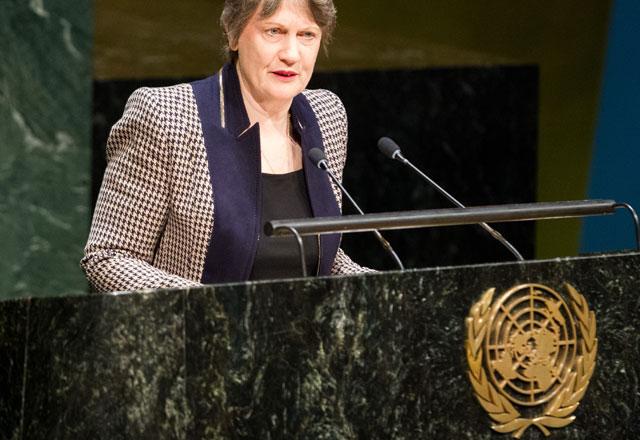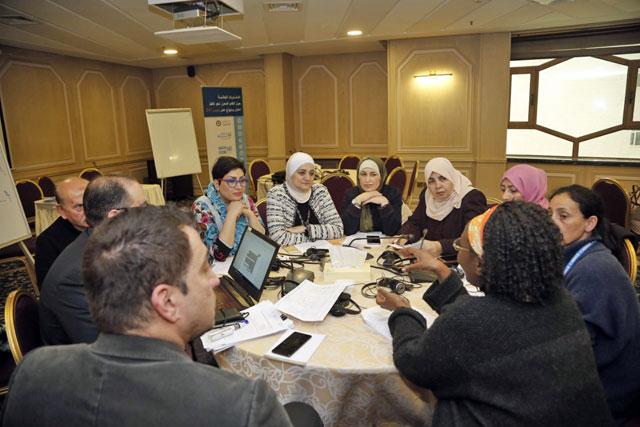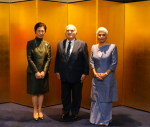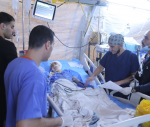You are here
Despite progress, women still face unemployment, lower wages — JNCW
By Laila Azzeh - Jun 15,2015 - Last updated at Jun 15,2015
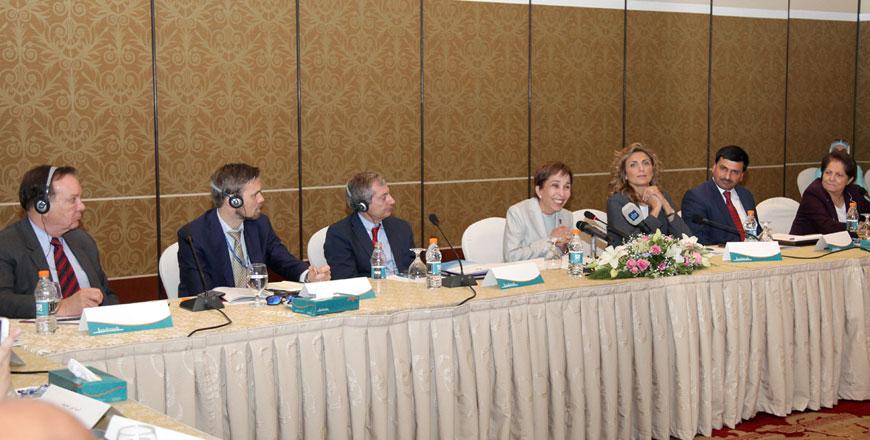
HRH Princess Basma, president of the Jordanian National Commission for Women, speaks at a round table held on Monday by the commission on the Beijing Declaration and its Platform for Action (Petra photo)
AMMAN — Representatives of governmental and non-government organisations met on Monday to discuss achievements and the most pressing challenges in implementing the Beijing Declaration and its Platform for Action.
HRH Princess Basma, president of the Jordanian National Commission for Women (JNCW), attended the round table held by the commission, and underlined the significant role the government plays in applying the provisions of the Beijing Declaration.
Citing the importance of the discussion as an "assessment" tool to identify challenges and build on achievements, she noted that many Jordanian women are suffering due to the regional unrest.
During the meeting, the JNCW presented its report on the progress achieved towards the implementation of the Beijing Declaration based on consultations with stakeholders.
The report said Jordan has "succeeded in demonstrating a commitment to meeting the second Millennium Development Goal: Achieving Universal Primary Education".
The Kingdom ranked 74 out of 142 countries listed in educational attainment, according to the 2014 World Economic Forum Global Gender Gap report, it added.
The percentage of women holding university degrees has more than tripled in recent years.
"Furthermore, Jordan has witnessed a major leap in the provision of healthcare and has also managed to close the gender gap in the area of health and life expectancy; female life expectancy stood at 76.7 in 2013, with male life expectancy at 72.7," the report said.
It also shed light on the main challenges women in Jordan face, as females still suffer from higher rates of unemployment and earn lower wages, despite the increased rates of enrolment in higher education institutions.
"This affects their economic independence and leads to many negative coping mechanisms such as early marriage, which accounted for 13.2 per cent of all registered marriages in 2013.”
The report said the Syrian refugee influx has negatively affected the country, due to the increased burdens the government is shouldering, adding that female-headed households, and unaccompanied girls and boys constitute the most vulnerable segment of the refugee community, making it "imperative to think of effective mechanisms of protection".
Civil society organisations (CSOs) presented their evaluation of the progress Jordan has achieved in empowering women and areas of weakness that should be tackled and addressed.
JNCW Secretary General Salma Nims stressed the commission's commitment to networking with CSOs to build consensus on a unified mechanism to monitor the government's work in the area of women’s empowerment.
In addition, participants agreed on a draft commitment, titled “Step it Up for Gender Equality,” which will be presented to Prime Minister Abdullah Ensour before being adopted within the UN framework as part of Jordan’s national obligations towards “Planet 50-50 by 2030”.
The gathering was held with the support of UN Women, UNFPA, WHO, UNICEF, UNESCO, UNDP and UNRWA.
Related Articles
The Jordanian National Commission for Women (JNCW) on Wednesday reiterated its commitment to lobbying for women’s rights in cooperation with civil society.
AMMAN — A local study has called on the international community to continue to shoulder its legal and moral responsibilities in supporting J
AMMAN — The Jordanian National Commission for Women (JNCW), headed by HRH Princess Basma, in cooperation with the UN Economic and Social Com


